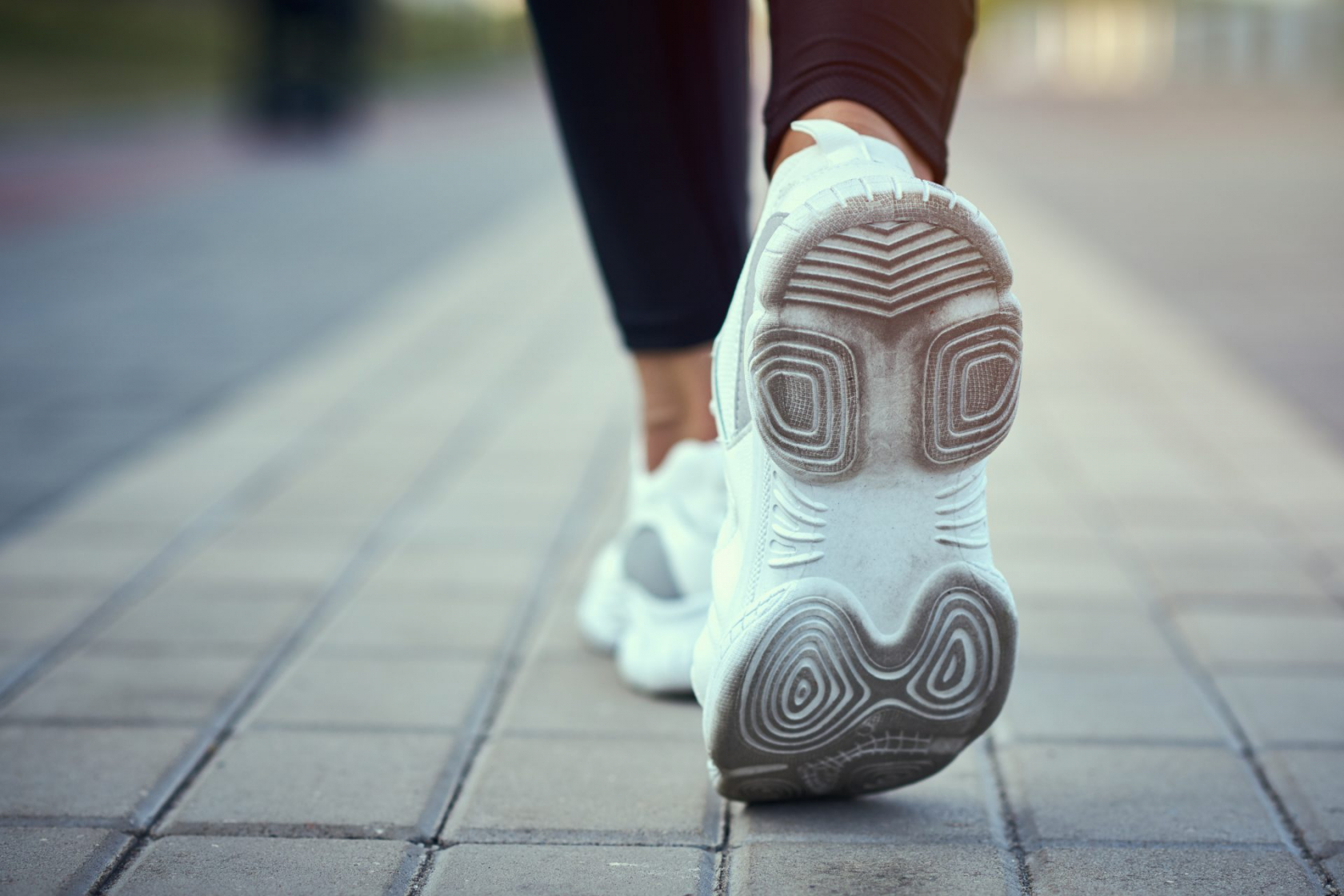The health benefits of walking are well publicised – but can walking make you better at certain forms of exercise, such as running? Stylist’s Lauren Geall took part in a two-week challenge to see if she could find out.
It’s no secret that walking is good for you. There’s a reason why so many of us took it up during the pandemic – not only is it a great way to get out of the house and clear your head, but it’s also good for your health. In fact, studies have shown that low-impact steady-state cardio (of which walking is one form) can benefit heart health and help to prevent high blood pressure.
But can walking make you a better runner? It’s a question I’ve been asking myself a lot recently. You see, during the pandemic, my mum and I both started running for the very first time – and while she’s continued to improve ever since (she’s currently getting impressively close to a sub-25-minute 5k), I’ve found it hard to make much progress.
This, despite the fact that I go for multiple runs a week (a mixture of 3k and 5k runs), while she tends to only run once a week at Parkrun. The only difference between our routines? She walks – a lot.
You may also like
Couch to 5K: “The 3 things that helped a beginner learn to love running 5k”
Not only does she go for a morning and afternoon walk with our dog, Marlowe, but she also has an active job and spends most of the day on her feet.
While I’m not saying her improvement is solely down to her walking habits (she also happens to be pretty damn mentally resilient, too), we’ve both decided it must have something to do with it. So, in a bid to discover whether our suspicions were correct, I decided to make a conscious effort to walk more for two weeks to see if it could help me to become a better runner.
The challenge

For two weeks, I headed out for at least a 30-minute walk every single day, avoiding every other form of exercise in the meantime. This meant that I didn’t run at all during the week and only did two 5ks during the experiment – one at the halfway point and one at the very end.
While I thought getting out for a 30-minute walk every day might be a bit of a struggle, it proved to be a lot easier than expected. There were definitely days when the cold and rain made the idea of getting outside less appetising, but once I got into a routine, I started to look forward to my daily walk.
It’s worth noting that I made a conscious effort to pick up the pace during these walks – I’m not talking about power walking, just keeping up a steady pace to ensure my heart rate remained elevated.
You may also like
Walking challenge: “I tried power walking to see if it could help me get fitter – here’s what happened”
On average, I walked about 2.5-3k every time – so I was keeping up an average pace of around 13 minutes per km. As I said, it was nothing crazy – just enough to keep my heart rate up throughout.
Over the course of the two weeks, I managed to walk over 30k in total – not including the steps I took around the house and other little trips to the shops or to the Tube.
The results

If, like me, you were hoping for a serious transformation, I’m sad to say you’ll be disappointed. While I did improve my 5k time over the course of the two weeks – I was running around 29m30s before the challenge and finished with 28m44s – I can’t say for sure whether this was down to the walking on its own or because I felt like I should be going faster and pushed myself harder as a result.
However, I do think my newfound walking routine did make a difference – especially when it came to keeping me active and making me feel more comfortable simply being on my feet.
Instead of ricocheting between days when I walked and ran a combined total of 15,000 steps and days when I literally didn’t leave the house (it’s so tempting when you’re working from home, right?), my daily walks meant that I was able to keep up a consistent level of activity – something which, as my friend (and qualified PT) Jade Marsden told me when I mentioned I was doing this challenge, can make a big difference to your overall fitness.
You may also like
Benefits of walking: why just 20 minutes of walking is so bloody good for you, according to science
In fact, she told me, it didn’t matter that the activity I was doing wasn’t as high intensity as a run or HIIT session – what mattered is that I was moving my body on a regular basis.
Indeed, as Strong Women Training Club trainer Dottie Fildes previously told Stylist: “Being ‘consistent’ doesn’t always mean working at the same intensity or doing the same type of workout. It means moving in some shape or form. It’s about having a habit that you fit around the other things in life.”
With this in mind, I’m definitely going to be making a conscious effort to move my body more going forward. Getting out for a 30-minute walk every day didn’t just make a difference to my fitness, it also helped me to clear my head amid the chaos of a busy working day – something I very rarely make time for.
Plus, with more time and investment in my walking habit, I think it could really help me to run faster and hit my 2022 running goals. What’s not to love about that?
Images: Getty
Source: Read Full Article
